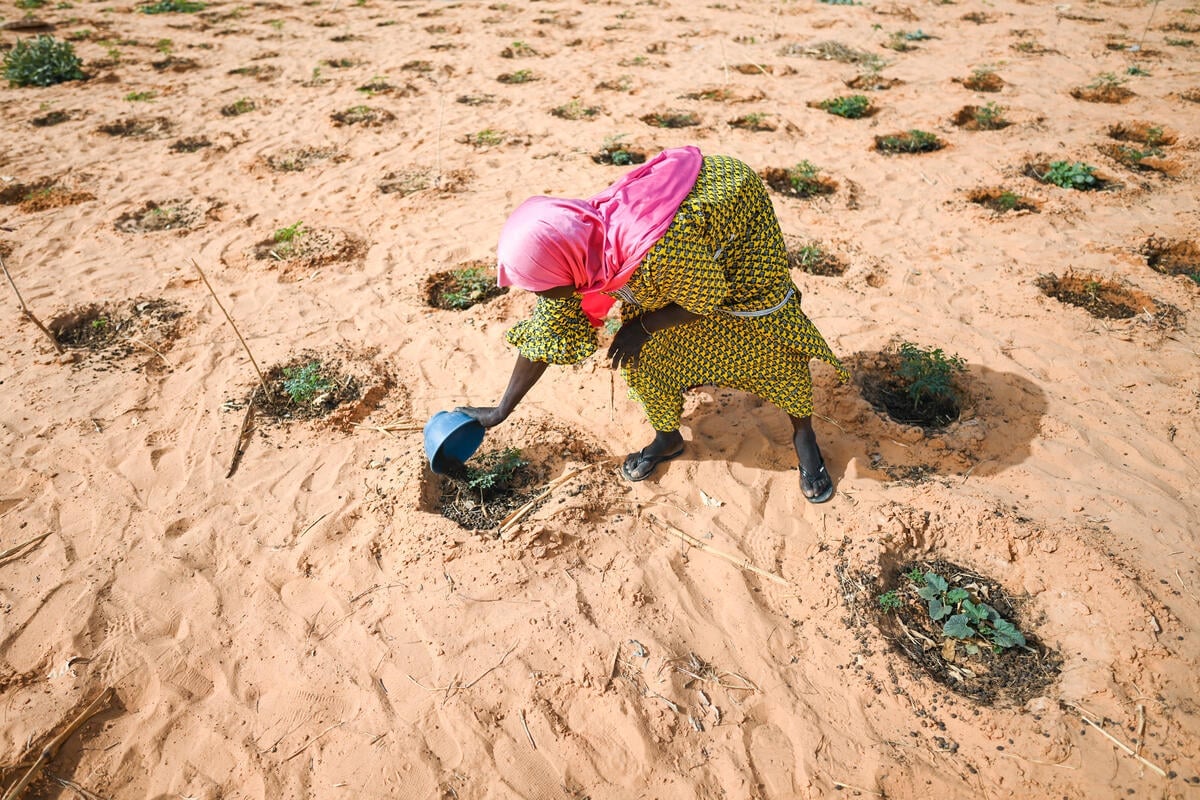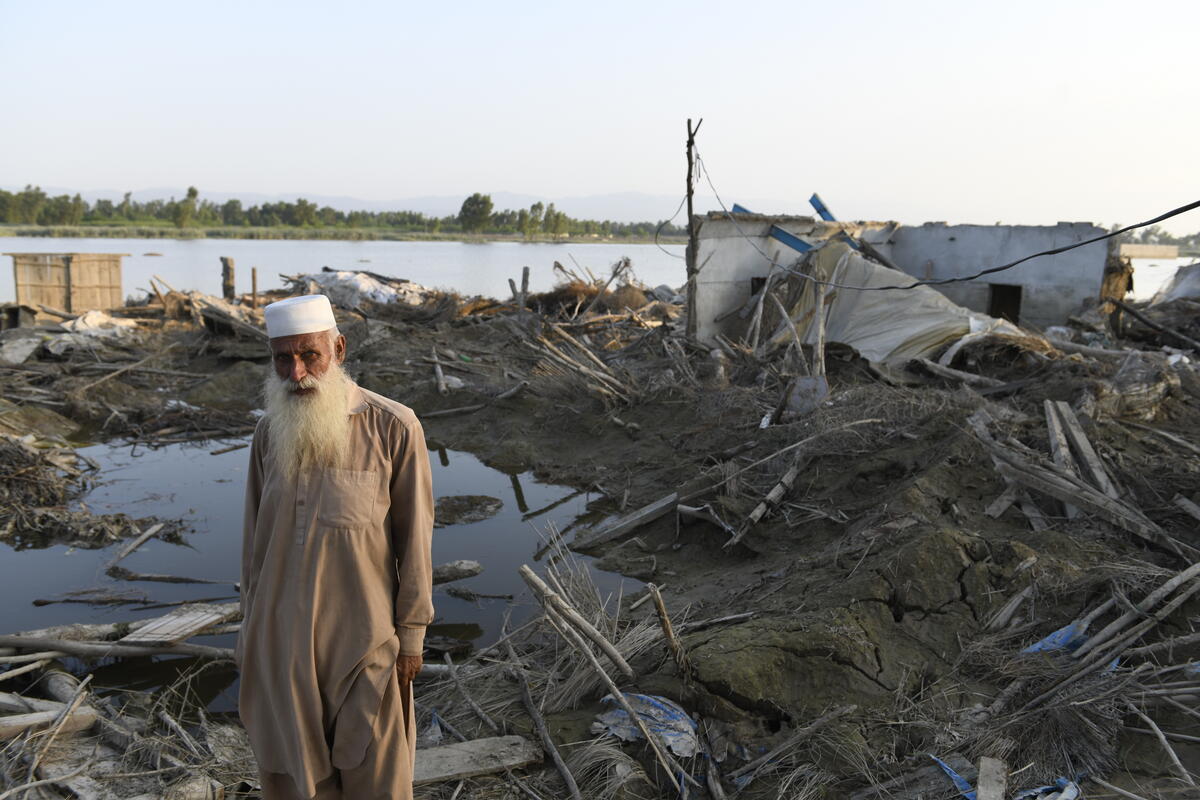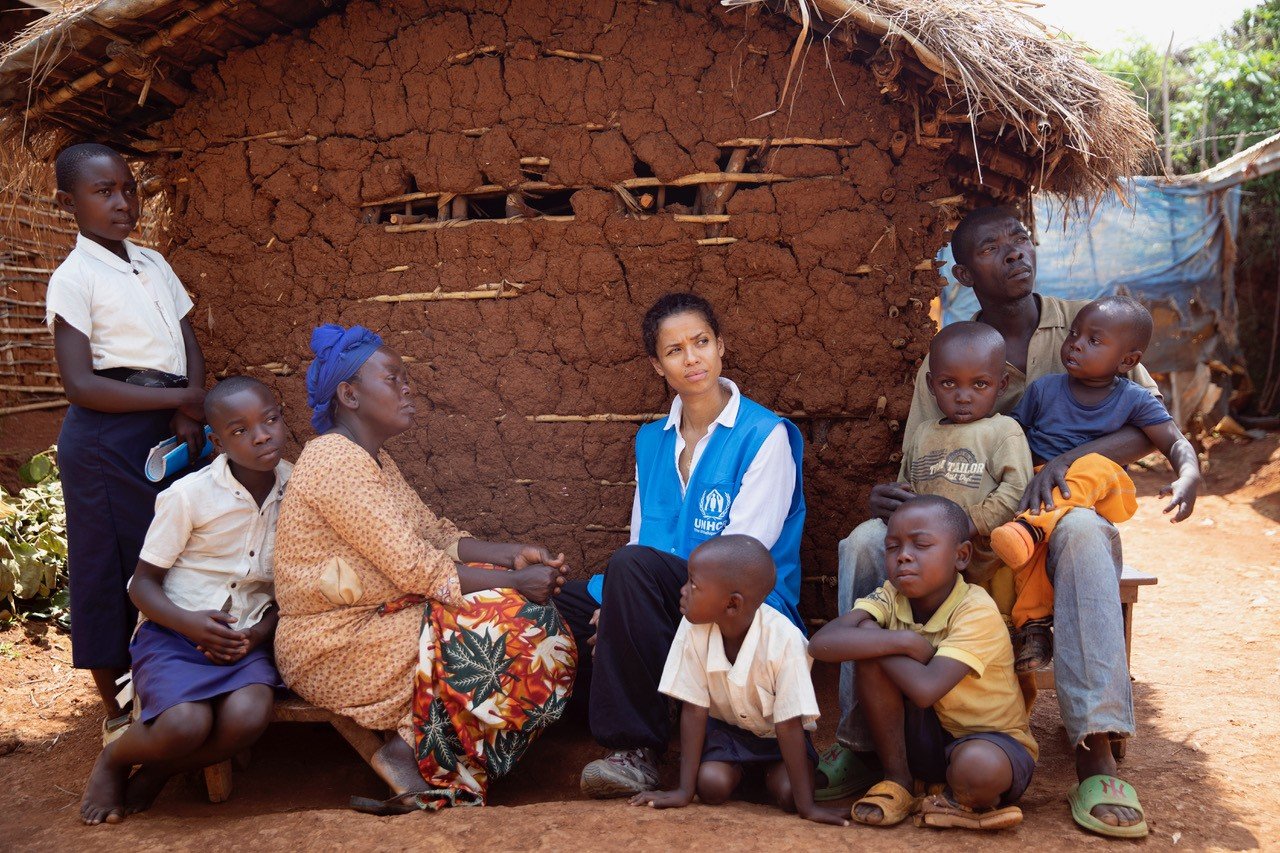News comment: Without international solidarity, Ukraine's displacement crisis could turn into catastrophe
News comment: Without international solidarity, Ukraine's displacement crisis could turn into catastrophe

Since 24 February, millions have been living through the horror of war in Ukraine. In a month, many civilians have lost their lives, with thousands more injured. Families have been torn apart. Without an immediate end to the fighting, this unspeakable suffering and mass human displacement will only get worse.
Almost a quarter of Ukraine’s population – more than 10 million people – have been forced from their homes. Some 3.7 million refugees have been forced to flee the country, making this the fastest-growing refugee crisis since the Second World War. An additional 6.5 million people have been displaced within Ukraine’s borders, and at least 13 million are estimated to be stranded in affected areas or unable to leave due to heightened security risks, destruction of bridges and roads, as well as lack of resources or information on where to find safety and accommodation.
Behind the figures lies unimaginable suffering that only grows as humanitarian needs increase. Intense fighting continues to trigger large-scale displacement while simultaneously exacerbating the plight of the internally displaced or those who cannot flee the worst-affected areas.
Homes, schools, hospitals, essential services and other civilian infrastructure have been laid to waste, reducing some people to drinking rainwater and snowmelt, cutting off supplies of food and medicines. Inside Ukraine, establishing safe corridors and satisfactory security guarantees for the evacuation of civilians continues to be an urgent issue. And the delivery of lifesaving aid remains dangerous and challenging.
UNHCR has been in Ukraine for 30 years and we will not leave. When and where able, along side and in coordination with other UN organizations, the ICRC and NGOs, we continue to support the efforts of the Ukrainian authorities by providing emergency shelter, cash assistance, core relief items – from blankets and hygiene kits to folding beds and sleeping bags – and other critical services for those who have fled. We are contributing to humanitarian convoys destined for people in hard-to-reach areas, and we will keep doing so.
Outside Ukraine, we have reinforced all our teams and scaled up our humanitarian response to bolster governments of countries receiving refugees from Ukraine in providing critical humanitarian and protection assistance and supporting authorities to increase their capacity to host new arrivals. The warm welcome and well-organized reception of Ukrainian refugees has been exceptional and deserves recognition and gratitude.
UNHCR, however, has flagged protection risks to groups among those fleeing Ukraine that are of huge concern to us. It is critical that measures are put in place to quickly identify, mitigate and respond to risks of gender-based violence, exploitation, abuse and trafficking of women and girls. We also recognize unaccompanied and separated children, and refugees who are LGBTIQ+, older or living with disabilities have particular needs and could be vulnerable to greater protection risks. Thousands of third country nationals fled the war alongside Ukrainian nationals, including some in need of international protection or at risk of statelessness. Many have reached safety or returned to their home countries, however, there are persistent reports of unequal or discriminatory treatment.
Even a single case of racism or discrimination preventing anyone from fleeing violence or from accessing asylum and safety is one case too many. We will continue to work with authorities inside Ukraine and in neighboring countries to ensure everyone fleeing the same violence and tragedy of war in Ukraine, is offered the same safety and protection.
I am grateful that neighbouring countries have kept their borders open, and I welcome the unprecedented decision by the European Union to offer Temporary Protection. I am also humbled by the extraordinary compassion shown by local responders and global supporters as they help those fleeing the conflict, in the form of accommodation, transport, food, and financial and material donations. This support and solidarity demonstrated by the states and people across Europe and globally has been incredibly heartening.
This level of solidarity should set the example for all refugee crises. Even as the Ukraine crisis intensifies, we must not forget the millions more children, women and men displaced by conflict, persecution, violence and human rights abuses. In many other regions of the world – far too many – the devastation inflicted on millions of innocents is no less real and no less cruel. The right to seek and gain asylum is universal. It is not conditional on the colour of your skin, your age, gender, beliefs or birthplace. Respect for refugee rights is not open to interpretation or negotiation.
This crisis will challenge us. The capacity of neighbouring countries receiving refugees is already coming under strain. A protracted conflict characterized by the brutal disrespect of international humanitarian law which we have observed in the past month can kill, terrorize and displace millions more. The only way to resolve this crisis is for the war to end. But while the number fleeing continues to rise, both they and the people hosting them need and deserve our support. More will be needed – for states, for refugees, for local communities – and I urge the international community to ensure that it is forthcoming.
The war in Ukraine has generated enormous suffering but also inspired acts of great courage, generosity and compassion. Ensuring continued support to its innocent victims is vital if we are to stop this crisis turning into a catastrophe.
For more information on this topic, please contact:
- In Geneva, Matthew Saltmarsh, [email protected], +41 (79) 967 99 36
- In Washington, Chris Boian, [email protected], +1 202 243 7634









